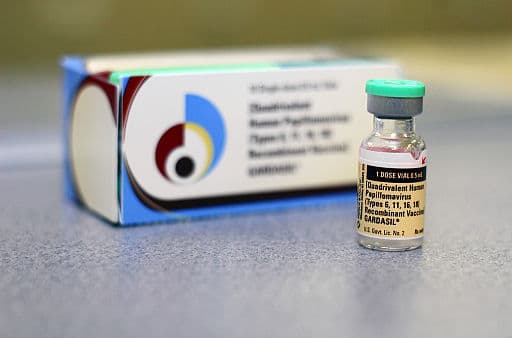
This article focuses on HPV vaccine.
Human Papilloma Virus is a common viral infection that will infect most people in their lifetimes, but usually clears up without need for treatment. It is transmitted through intimate contact and is extremely common in people who have had sex before. It does not usually cause any symptoms. There are many different types of HPV. Low risk HPV types cause genital warts but not cancer. High risk HPV types can cause pre-cancerous changes which may eventually lead to cervical cancer if there is no intervention.
The HPV vaccine can prevent cervical cancer by protecting against certain strains of HPV infection. Vaccination has been shown to protect against 70-90% of cervical cancers if given before onset of sexual activity (depending on vaccine type). Although the vaccine cannot treat current infection, it can still offer some protection for those who are sexually active or already exposed to HPV. It is a 2-dose regime (0 and 6 months) for girls/boys aged 9 to 14 years, and a 3-dose regimen (0, 2, 6 months) for girls/boys aged 15 years and above. It is currently licensed from 9 to 26 years old but is safe to be given for those above 26 years old as well.
It is a very safe vaccine with minimal side effects. The most common side effects are pain, slight swelling/redness at the injection site, and temporary headache.
Yes. Protection is not 100% and it is recommended that you have regular cervical cancer screening.
| Types of HPV vaccine | Cervarix | Gardasil-4 | Gardasil-9 |
| Coverage | HPV 16/18* | HPV 16, 18*HPV 6, 11+ | HPV 16, 18, 31, 33, 45, 52, 58*HPV 6, 11+ |
| Medisave cover | Yes | Yes | No |
*16/18 causes 70% of all cervical cancers. 16/18/31/33/45/52/58 causes 90% of all cervical cancers
+ 6, 11 causes genital warts